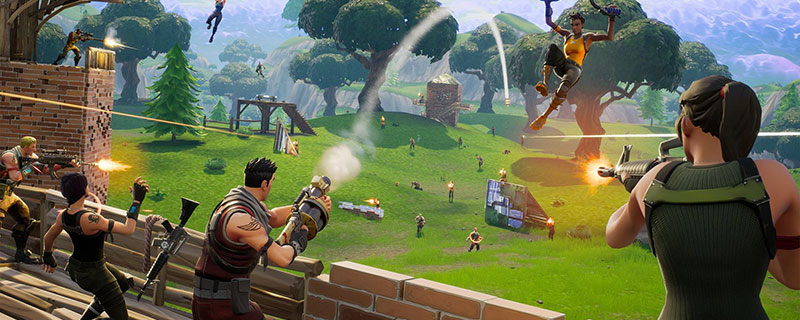
With Fortnite surpassing PUBG in terms of both player-base and total revenue, an interesting pattern has now emerged across a number of genres.
While PUBG was not the first Battle Royale game, it was considered the ultimate beast of that game mode—a battle royale to end all Battle Royales, if you will. But another game from the creators of Unreal Tournament and Gears of War landed on the battlefield – Fortnite. It quickly gained ground and ultimately surpassed the original PUBG giant.
Fortnite’s success should come as little surprise: Far more refined mechanics, deeper gameplay, its art style singular and easy to recognize. That it is free also paved the way to rapid adoption. PUBG’s bugs and optimization, compounded by how slowly they were being addressed rendered the game somewhere between broken and unplayable. Like others, I went off the game and even the genre, and expect not to touch this game mode any time soon.
Being the second iteration in the Battle Royale scene allowed Fortnite to build on what PUBG had done, ironing out here, refining there, while also adding new ideas to the game. It struck while demand was still hot and before the copy cats saturated the market. Strategic decisions and fast, professional development cycles seem to triumph.
However, Fortnite has not been the only game to cash in. It wouldn’t be a pattern, otherwise, right? Often a game or mod brings an idea to market, only to see another creator or iteration make major improvements to the formula and achieve even larger success. Third and later iterations may make further improvements, even if they aren’t as major. Here there will be no reason for a player to leave the game they have spent so much time learning and getting good at for something that, to them, looks like a copy.
Just as Epic and Fortnite found success with improving an already existing formula in a not (yet) saturated market, so did Psyonix and their game Rocket League, another second iteration of a new idea. Psyonix had previously published a game with the charming name: Supersonic Acrobatic Rocket-Powered Battle-Cars, which was a failure. Released in 2008, the game, the name of which I won’t try to write a second time, received a 67 on metacritic and did not establish a large player following. The performance issues with the weak and aging last gen consoles as well as the lack of features which are essential to Rocket League, such as a party system, resulted in most gamers not knowing that Rocket League had a prequel.
With Rocket League, the studio was able to use the new and slightly less weak consoles to achieve a stable frame-rate with fewer compromises than we have come to expect from said consoles. Timing, of course, is another factor that affects a release, and in 2015 Rocket League was able to trot itself out on Twitch, Youtube and social media, all of which were a fraction of their behemoth selves a decade ago.
The extremely popular League of Legends is yet another second iteration in the MOBA genre, as the original DOTA set the stage and proved there is public interest. Later games have not managed to achieve its success. DOTA 2 may prove quite successful and I will not argue which game is better (mostly I think all MOBA’s fall short of their progenitor RTSs) but LoL refined the original formula and has found a level of success that is unlikely to be matched in the genre anytime soon.
Of course, there are exceptions to the pattern: first iteration games like Counter-Strike are still the most popular and successful performers in their sub-genres. However, it almost seems logical that there is a game to spark the public interest, drawing the attention of other game studios (or the same one) followed by their efforts, which are leveled at working out a second iteration that better hits the sweet spot. In a sense this is not unlike GPUs, where it is usually the second iteration that is the most interesting or important.
And as it happens, the more you dig in the history of games, the more you can see this second iteration success: Dark souls to Demon’s souls, World of Warcraft to Everquest, Fallout to Wasteland. All of these games were inspired by a predecessor, whose crown they ultimately stole.





















